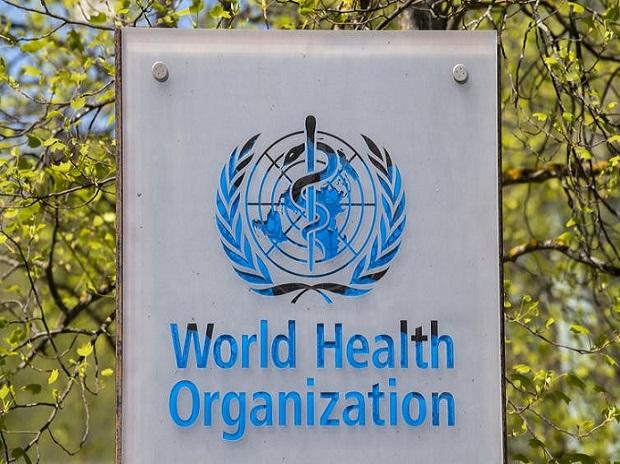As the World Health Organization draws up plans for the next phase of its probe of how the coronavirus pandemic started, an increasing number of scientists say the U.N. agency it isn't up to the task and shouldn't be the one to investigate.
Numerous experts, some with strong ties to WHO, say that political tensions between the U.S. and China make it impossible for an investigation by the agency to find credible answers.
They say what's needed is a broad, independent analysis closer to what happened in the aftermath of the 1986 Chernobyl nuclear disaster.
The first part of a joint WHO-China study of how COVID-19 started concluded in March that the virus probably jumped to humans from animals and that a lab leak was extremely unlikely.
The next phase might try to examine the first human cases in more detail or pinpoint the animals responsible possibly bats, perhaps by way of some intermediate creature.
But the idea that the pandemic somehow started in a laboratory and perhaps involved an engineered virus has gained traction recently, with President Joe Biden ordering a review of U.S. intelligence within 90 days to assess the possibility.
Earlier this month, WHO's emergencies chief, Dr. Michael Ryan, said that the agency was working out the final details of the next phase of its probe and that because WHO works by persuasion, it lacks the power to compel China to cooperate.
Some said that is precisely why a WHO-led examination is doomed to fail.
We will never find the origins relying on the World Health Organization, said Lawrence Gostin, director of the WHO Collaborating Center on Public Health Law and Human Rights at Georgetown University.
For a year and a half, they have been stonewalled by China, and it's very clear they won't get to the bottom of it.
Gostin said the U.S. and other countries can either try to piece together what intelligence they have, revise international health laws to give WHO the powers it needs, or create some new entity to investigate.
The first phase of WHO's mission required getting China's approval not only for the experts who traveled there but for their entire agenda and the report they ultimately produced.
Richard Ebright, a molecular biologist at Rutgers University, called it a farce and said that determining whether the virus jumped from animals or escaped from a lab is more than a scientific question and has political dimensions beyond WHO's expertise.
The closest genetic relative to COVID-19 was previously discovered in a 2012 outbreak, after six miners fell sick with pneumonia after being exposed to infected bats in China's Mojiang mine. In the past year, however, Chinese authorities sealed off the mine and confiscated samples from scientists while ordering locals not to talk to visiting journalists.
Although China initially pushed hard to look for the coronavirus's origins, it pulled back abruptly in early 2020 as the virus overtook the globe.
An Associated Press investigation last December found Beijing imposed restrictions on the publication of COVID-19 research, including mandatory review by central government officials.
Jamie Metzl, who sits on a WHO advisory group, has suggested along with colleagues the possibility of an alternative investigation set up by the Group of Seven industrialized nations.
Jeffrey Sachs, a professor at Columbia University, said the U.S. must be willing to subject its own scientists to a rigorous examination and recognize that they might be just as culpable as China.
The U.S. was deeply involved in research at the laboratories in Wuhan, Sachs said, referring to U.S. funding of controversial experiments and the search for animal viruses capable of triggering outbreaks.
The idea that China was behaving badly is already the wrong premise for this investigation to start, he said. If lab work was somehow responsible (for the pandemic), the likelihood that it was both the U.S. and China working together on a scientific initiative is very high.
(Only the headline and picture of this report may have been reworked by the Business Standard staff; the rest of the content is auto-generated from a syndicated feed.)
 Dear Reader,
Dear Reader,
Business Standard has always strived hard to provide up-to-date information and commentary on developments that are of interest to you and have wider political and economic implications for the country and the world. Your encouragement and constant feedback on how to improve our offering have only made our resolve and commitment to these ideals stronger. Even during these difficult times arising out of Covid-19, we continue to remain committed to keeping you informed and updated with credible news, authoritative views and incisive commentary on topical issues of relevance.
We, however, have a request.
As we battle the economic impact of the pandemic, we need your support even more, so that we can continue to offer you more quality content. Our subscription model has seen an encouraging response from many of you, who have subscribed to our online content. More subscription to our online content can only help us achieve the goals of offering you even better and more relevant content. We believe in free, fair and credible journalism. Your support through more subscriptions can help us practise the journalism to which we are committed.
Support quality journalism and subscribe to Business Standard.
Digital Editor

RECOMMENDED FOR YOU